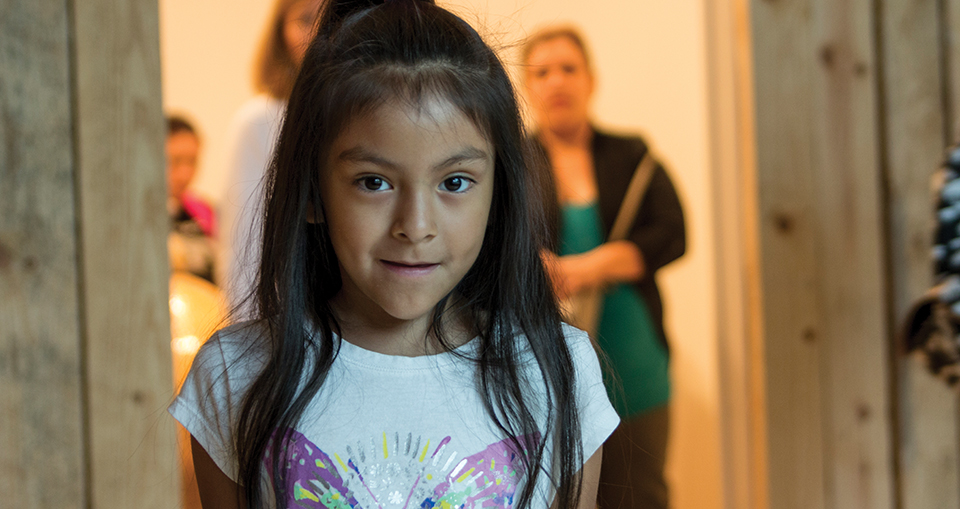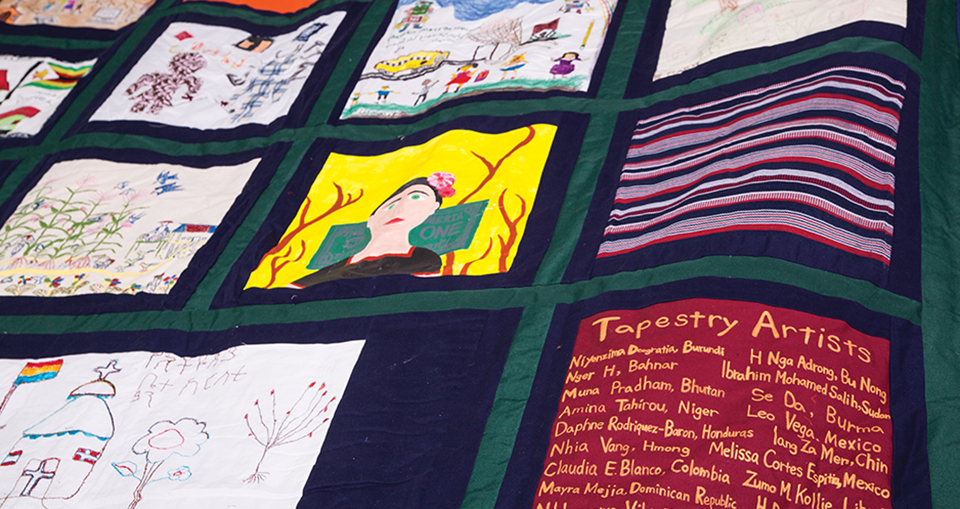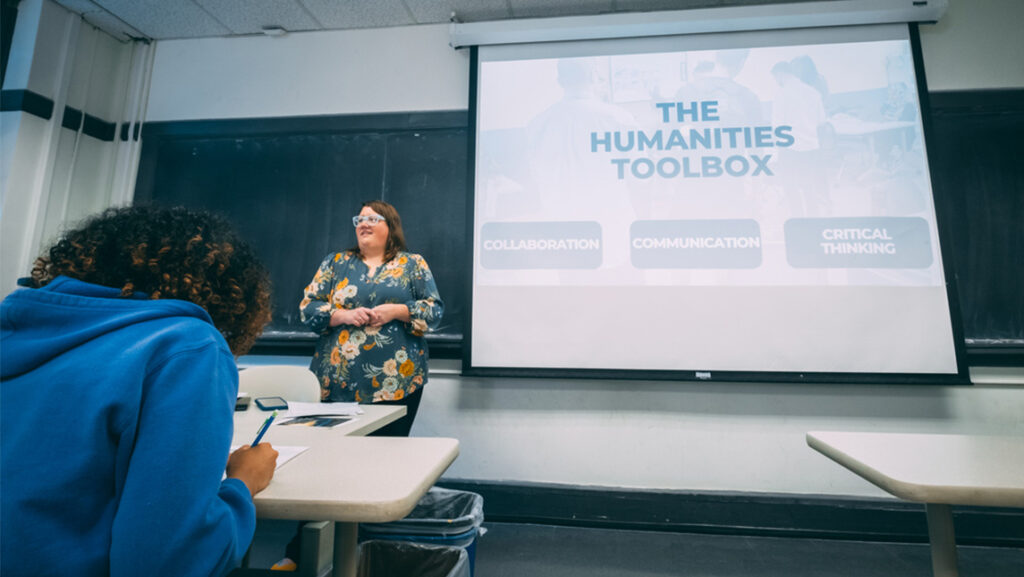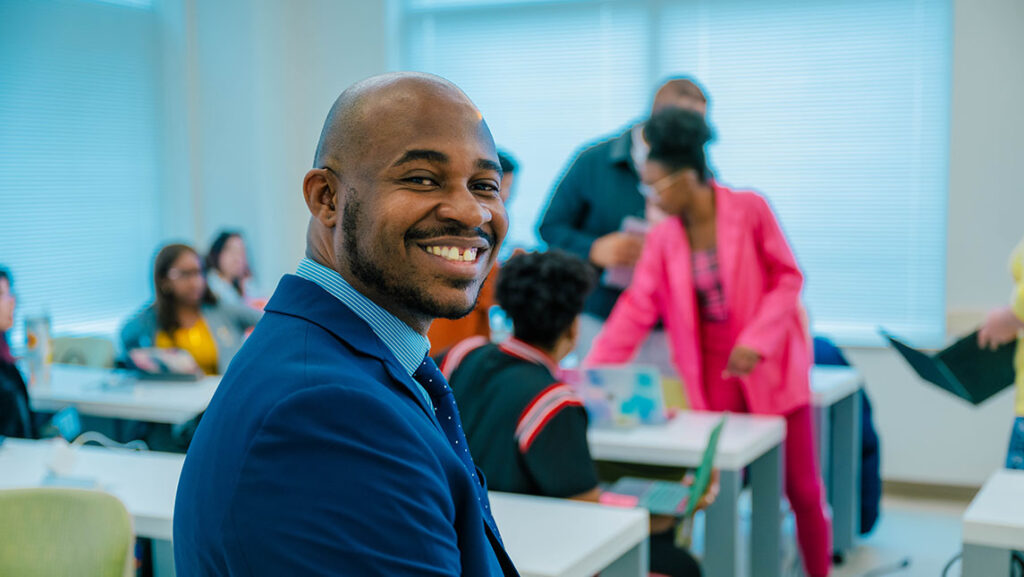a fall 2016 Research Magazine feature
College bound. When it comes to bragging on our kids, few phrases make parents more proud. For many of us, planning for our children’s higher education commences before they enter high school. We pressure our kids to excel, and we strive to give them every advantage we can.
But some families face more barriers than others in fulfilling these aspirations.
Among the biggest hurdles facing our nation’s Latino immigrant families? Researchers at UNCG have found that parents who experience language barriers — or don’t understand how U.S. schools work — don’t know how to best participate in their children’s education, even if they have big dreams for them.
These researchers say that, for Latino immigrant families, an important way to help students succeed is to work with their parents.
UNCG is at the forefront nationally in addressing what Dr. Laura Gonzalez in the Department of Counseling and Educational Development calls “this big gap between home and school” for Latino immigrant families. Hundreds of faculty, staff, students, and volunteers affiliated with the university are working with families locally and experts nationally to bridge that gap.
The importance of their work reaches beyond local neighborhoods and schools. “Stepping forward to help these communities is in America’s best interests,” says Dr. Micheline Chalhoub-Deville, director of UNCG’s Coalition for Diverse Language Communities and an immigrant to the U.S. from Lebanon, 30 years ago.
“Immigrant families are eager to participate in the community, to be good Americans, if you will,” Chalhoub-Deville says. “When we ignore our diverse language populations, when we fail to provide them with education, we are not only leaving them at risk, but we are also losing an opportunity to utilize their unique skills in the workforce.”
UNCG’s efforts to help Latino immigrant families are proving successful and creating models for other communities. The work starts with a UNCG hallmark – community-engaged scholarship – that reaches into communities to both identify and address problems together with the people there. Decisions on how and where services are delivered, and assessments of and improvements to those services are all efforts done in partnership with parents.
“Everything we do is organic in nature,” says Dr. Holly Sienkiewicz, director of the UNCG Center for New North Carolinians. “We don’t force our programs on people. We see what their needs are and we provide options around that.”
Adaptive interventions
Gonzalez works with Latino immigrant families preparing for higher ed
Since her arrival at UNCG in 2009, Gonzalez has focused on understanding the Latino immigrant community and using what she learns to help parents and their children. The associate professor in the Department of Counseling and Educational Development began collaborating with Dr. Gabriella Stein, associate professor of clinical psychology. Their interviews with Latino adolescents about their experiences in schools and at home informed Gonzalez’s current outreach program.
Talking with more than 100 students individually and conducting focus groups with about 20 parents produced a consistent storyline – parents want to be more involved with their children’s education, but are not familiar with the U.S. educational system; and children wish for more assistance from their parents, but understand their limitations…. read more
Real World English
Working with immigrant parents to help Latino kids succeed
A chance encounter between Kattya Castellón, associate director of admissions at UNCG, and a Greensboro middle school parent in 2014 spawned a Latino outreach program that is rapidly growing thanks to the enthusiasm of a host of university and community partners.
UNCG’s Real World English program teaches Latino parents to speak English so that they may in turn help their children plan to attend college. It’s what’s known as a two-generational approach to education. It addresses a common problem for immigrant parents – arranging care for their children – by offering classes for their kids while they attend classes in the same location…. read more
The Earlier the Better
Latino children and access to early care and education
“Access to higher education begins in preschool,” says Dr. Mendez Smith, associate professor of psychology at UNCG.
“Early education experiences provide children with language, learning, and social skills they need for school success.”
As experts working with the National Research Center on Hispanic Children and Families, UNCG’s Dr. Julia Mendez Smith and Dr. Danielle Crosby are at the forefront of national research efforts examining barriers between Latino children and access to early care and education (ECE).
Latinos make up more than a quarter of all children five years and younger in the U.S., and more than two-thirds of Latino children live in or near poverty.
“Making an impact in this population makes a major impact on America’s future as a whole,” Mendez Smith says… read more
Thriving at Three
A CNNC program to address the early care and education gap
Thriving at Three, part of UNCG’s Center for New North Carolinians, provides programming for at-risk Latino immigrant children from birth to three years and their parents. It’s one way UNCG is working to address the early care and education gap experienced by Latino populations… read more
A Multidisciplinary Approach
UNCG’s Coalition for Diverse Language Communities
The CDLC has emerged as a valuable resource for UNCG faculty and staff seeking to collaborate on community-based projects, especially ones posing complex challenges that require multiple disciplines and partners. It also fosters support and sharing of best practices among faculty.
“Many of us do this kind of work as an extension of our scholarship,” says Chalhoub-Deville, who is a professor in educational research methodology. “It is doing what matters in the community where we live.”… read more
Redacted from “Breaking down Barriers,” a fall 2016 Research Magazine feature by Chris Burritt.








